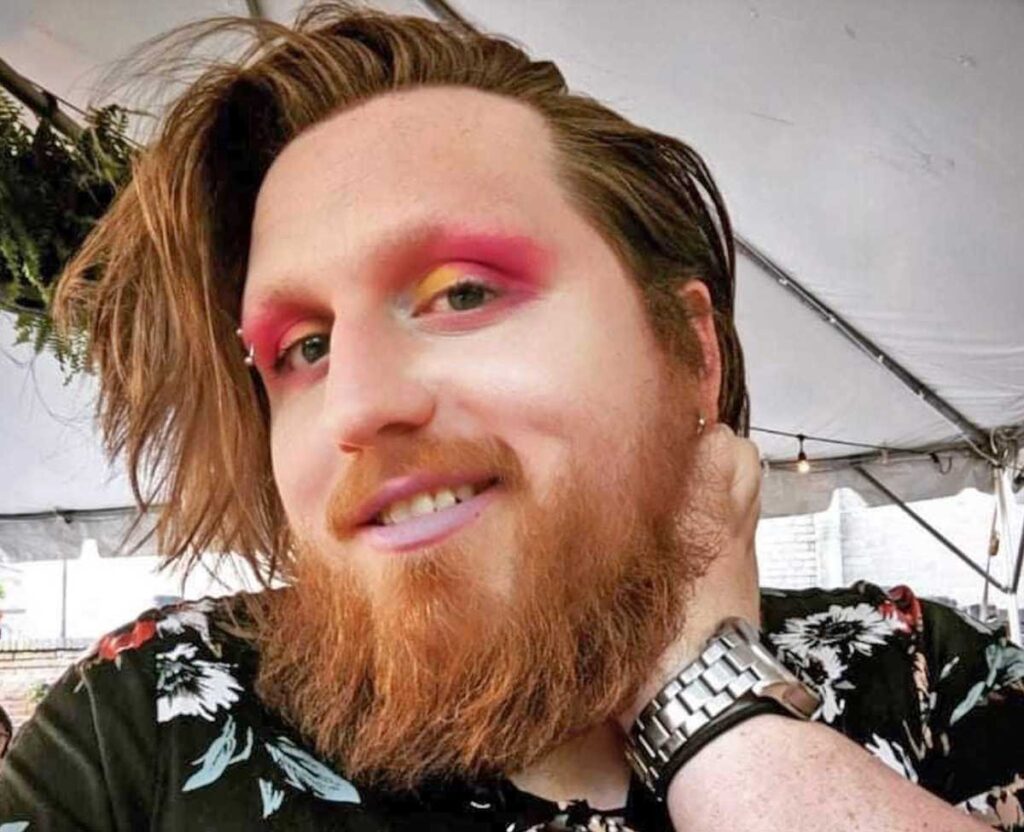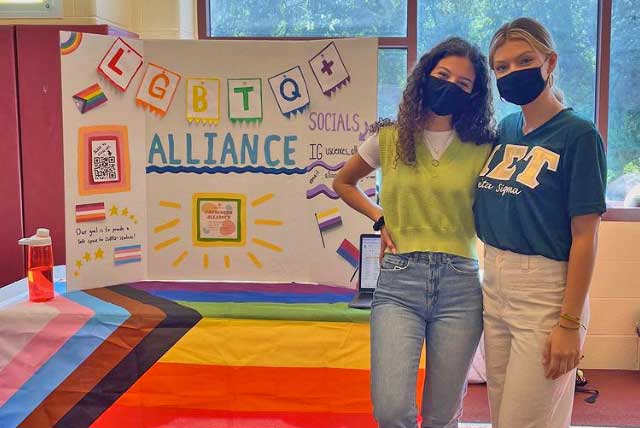When Zeina Issa first became President of the University of the Sciences LGBTQ+ Alliance in September 2020, the virtual meetings drew around 10 participants. The alliance had initially dissipated following the shift to fully remote learning in March 2020, and recruiting for its return was proving difficult as students contended with the lack of physical proximity to each other, stress from unsupportive families, and continued demands of coursework. Although Issa and her fellow board members continued to organize events throughout the remote learning period, including a tie dye workshop and virtual meetings, the participation simply was not there amid shifting priorities.
The challenges faced by the LGBTQ+ Alliance are not unique to them; university LGBTQ+ clubs, particularly at smaller schools, have seen a decrease in engagement and membership over the past two years. In the case of USciences, Issa felt like the university staff, faculty, and even many students who would normally participate did not have the time or interest to join an LGBTQ+ club.
“It wasn’t until I became president of our organization and started hosting events and discussions that we felt acknowledged as a community,” she told PGN.
In addition to the challenges faced with remote learning, the lack of support for university LGBTQ+ organizations, particularly from faculty, can be attributed partly due to the fact that LGBTQ+ and other marginalized faculty are often asked to perform unofficial advising and mentoring on top of their required teaching duties. Dr. Adrienne Shaw of Temple University told PGN that such unofficial faculty duties are a potential reason why the university’s Faculty Senate Committee on LGBTQ+ has remained on hiatus since 2016.
Nevertheless, people like Issa continued leading their clubs through the pandemic, and as campus life gradually resumed, the USciences LGBTQ+ community started to come out again. When students returned to in-person learning in August 2021, the LGBTQ+ Alliance saw a spike in membership, and approximately 30 people began showing up for events regularly.
“This was surprising for us, considering our campus is very small,” Issa said.
She feels empowered as an LGBTQIA+ person on campus because of the camaraderie the club offers.
Yet, she fears the club will cease to exist again once the e-board graduates in May 2022. Others at local colleges and universities have expressed similar reservations. Without enthusiastic leadership and clear succession plans when people graduate, maintaining such clubs becomes difficult, even during non-pandemic times.

Vincent Scarfo, coordinator of the Marc David LGBTQ Center at the Community College of Philadelphia, works closely with LGBTQ+ clubs at CCP. They told PGN that club involvement has significantly changed in recent years. Particularly, low enrollment rates during the pandemic made it hard to find folks willing to lead the student-run clubs. The 2019 executive board of the LGBTQIA+ student club at CCP, not anticipating a global pandemic, did not work on a transition of power plan at the beginning of 2020. The club has been on hiatus ever since.
“A transition plan wasn’t really in our top priorities,” Scarfo said. “But once those students graduated and moved on, it was kind of hard to get folks involved. A lot of times the next generation of leaders is recruited by this seated board.”
Scarfo said that some students had reached out to them during the pandemic to ask about the whereabouts of the LGBTQ club. When Scarfo replied to let them know about the open leadership positions, Scarfo did not hear back. “I think people also just don’t want to take on extra responsibilities, like running a club, during a pandemic,” Scarfo said, adding that many other clubs went on hiatus simultaneously.
Scarfo said that they had zoom calls with students who were unsupported by their birth families yet were forced back into their homes due to the pandemic. To that, Scarfo encourages students to find community online.
”A lot of people kind of look down on online connections and think of them as lesser,” they told PGN, “but I know for a lot of folks that online relationships literally saved their lives.” Specifically, anonymity and geographical distance give students a sense of safety when communicating online.
Scarfo further underlined the unique advantage of online spaces in finding groups for particular niche interests. They said that there are local groups like Queer Exchange Philly, a Facebook group to share and exchange resources in Philadelphia, as well as groups specifically targeted towards particular interests like knitting.
In addition, Scarfo started a YouTube Live LGBTQ discussion series to meet students where they are at. They initially felt disheartened when they saw low attendance in those online teach-ins, but over time, they saw viewership rise.
“I would go back a few hours later and see that 32 people had watched it. And then I go back a few weeks later, and 121 people have watched it. So, it’s great to see that people do care about the programming, even if they don’t have the time or energy to do that when it is happening.”
Besides extracurricular activities, the Community College was also planning to offer its single LGBTQ+ specific class, “Introduction to LGBTQ+ Literature.” The instructor of the course, Assistant Professor John Joyce, mournfully said, “We offered it twice and were unable to get it to run with enough students. We needed at least 10.“ While hoping for the Fall, Joyce also acknowledged the problematic low enrollment rates at the college.
Despite the pandemic changing ways students interact and organize with each other, Scarfo is hopeful for the future. They said, “The pandemic has really opened our eyes to how much technology can give us flexibility. A big mistake that we could make is just going back to exactly how things were before.”
